September 2025 - Outside, the moon is up - the harvest moon over harvest fields.

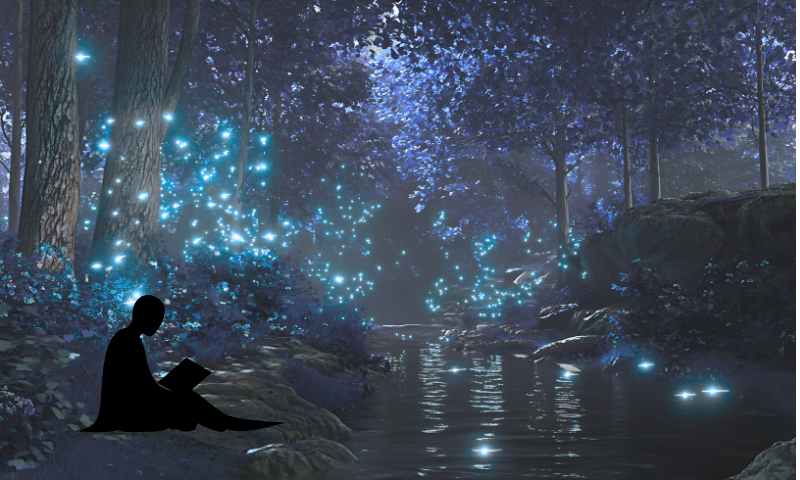
The quote is by Adrian Bell, from his book Corduroy. Despite the summer drought, we somehow managed to bring in a small bounty this summer, thanks to plenty of sunshine, meticulous work in the garden, and drip-hose watering. I’ve picked so many green beans (scarlet runners, pole, bush, and leather britches), and there’s still a ton growing. Since mid-July, I’ve collected about a three pounds a week, so 25+ pounds and counting. Two tomato plants have yielded constant fruit, enough for chili, tomato bisque, freshly sliced tomatoes, and fried green tomatoes.
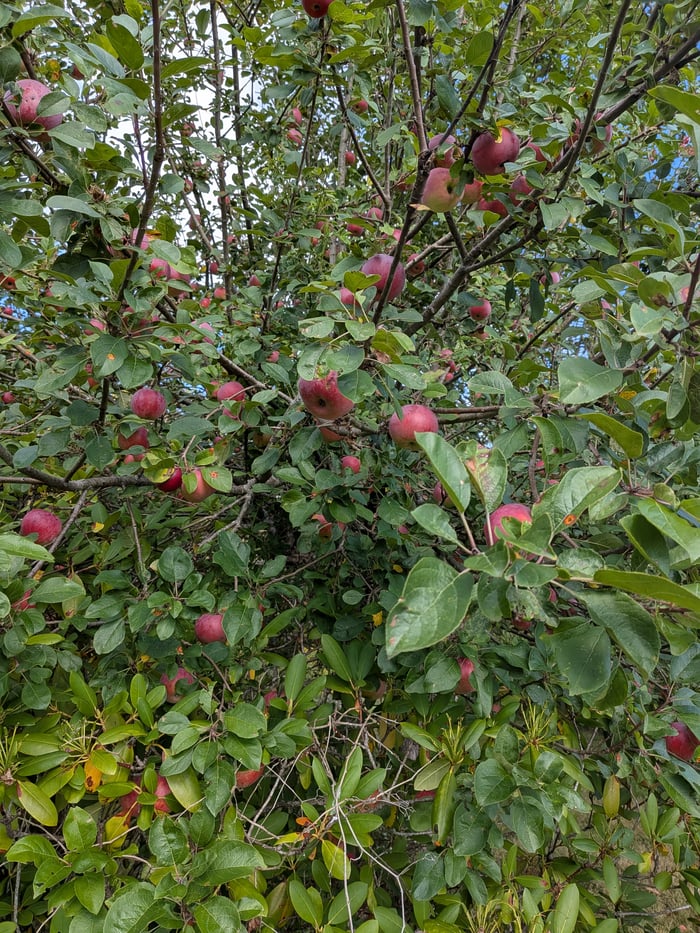
It’s almost apple-pickin’ time; we’ll wait a couple weeks so we can make fresh apple cider, apple butter, and strudel for an OktoberFest party we’re hosting when some family comes to visit (along with some friends and neighbors). We’re seeing the last of the tomatoes now. We managed to grow four healthy and big butternut squashes—still ripening on the vine—as well as two large pumpkins, several baby pumpkins I might turn into dried gourds like my mamaw did, and a ton of potatoes, whose leaves are just starting to dry out. Also are fresh rosemary, mint, thyme, dill, chives, and cilantro. The last turnips are getting larger, and I’ve enjoyed a few turnip meals this summer, the way my mother and mamaw made them: sliced and fried in fat with onions. The turnip and mustard greens were a treat from earlier summer, and they’re mostly done in the garden.
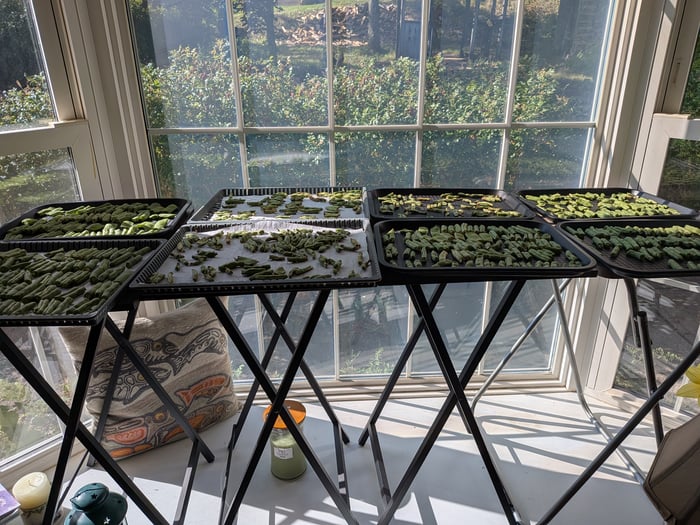
Anyway, the summer is nearly over, and it’s been a wonderful one—kayaking nearby lakes, checking out farmer’s markets, being in the sun, planting and growing, visiting beaches, and more. I hate to see summer end because I thrive on warmth and sun. But this is possibly my favorite time of year: we’ve stacked the woodpiles, the days are growing shorter, we’ve started closing windows some nights, the air is crisp, crickets are singing like mad, and there’s just that feel in the air. And it’s only about three weeks before the harvest moon.

Ecofiction news
I can’t help but insert the wonder I experience in my personal life into these newsletters—that’s the writer in me. I love to read and tell stories about outdoor life. I’ve been running Dragonfly.eco since August 2013 and plan on creating content and reporting on ecological fiction until I’m too old to do it anymore.
World spotlight/Turning the Tide feature
This month I talked with Australian author, comedian, and actor Anh Do, who is writing the Wolf Girl series. Wolf Girl is for middle-grade readers (ages 7-12). Do’s young experiences—facing prosecution during the Vietnam War and fleeing the country on an old fishing boat, which was attacked twice by pirates—made the author grateful for surviving those experiences.
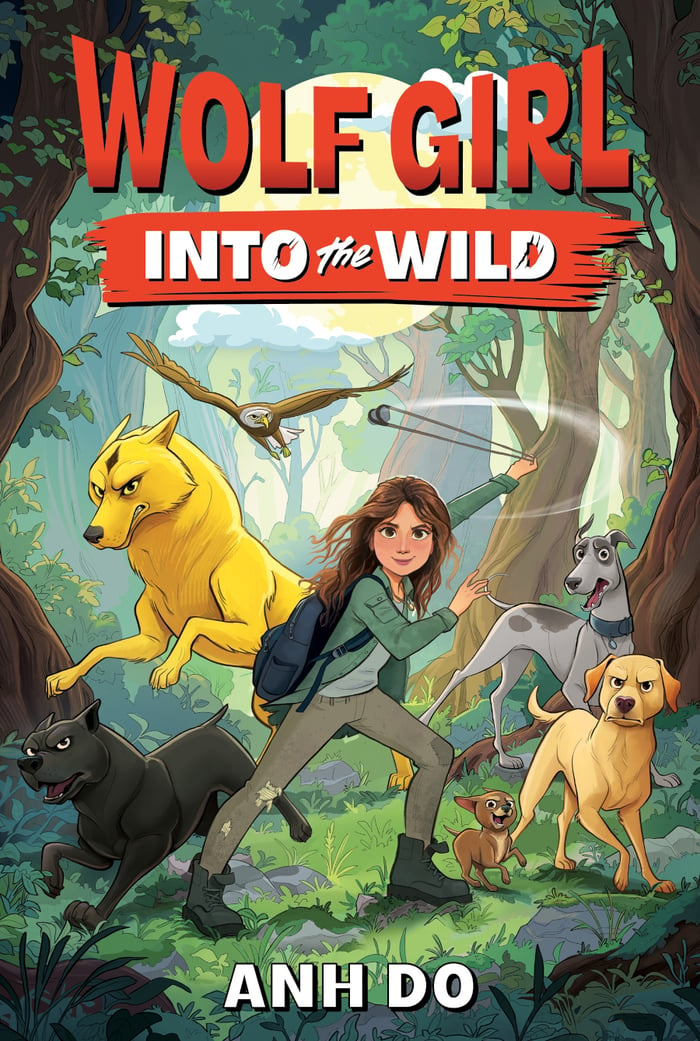
Do said that when he was growing up his family owned a farm, and he spent entire days wandering around the nearby forest with his pack of seven dogs, who became like his little band of buddies. The series is about a young girl named Gwen who gets lost in the forest and befriends a similar pack of adorable dogs. Do said, “Nature is a big part of the stories. Dogs and wolves and eagles are much more attuned to nature than human beings. So the animals teach Gwen how to become similarly attuned.”
Indie corner
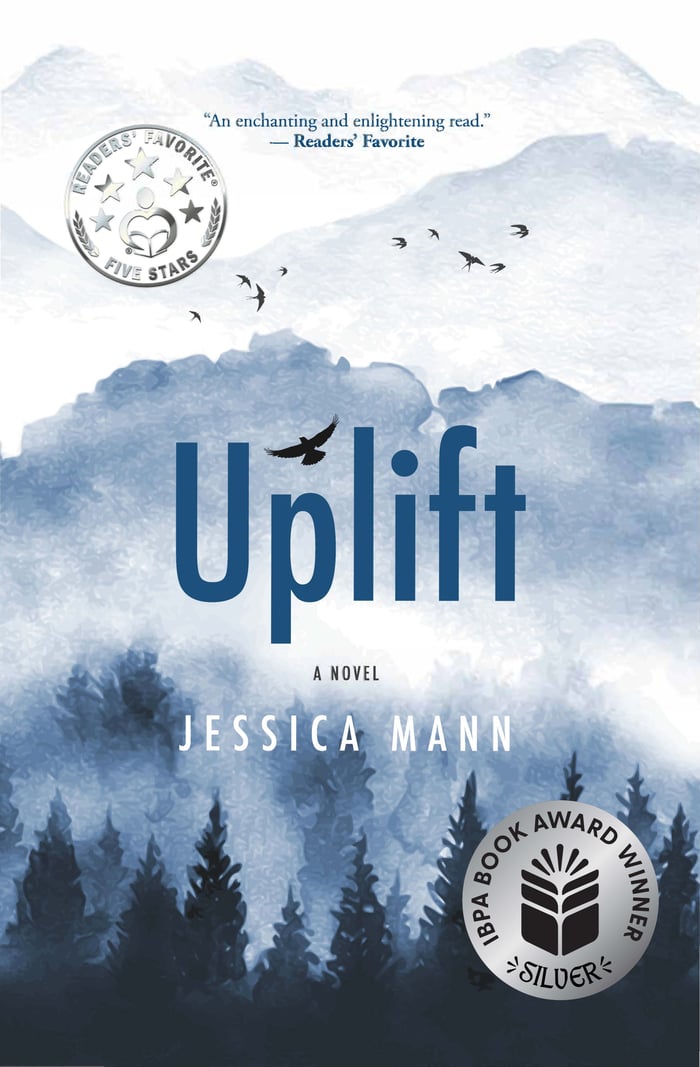
Isn’t this a beautiful book? Jessica Mann and I chatted about her newest novel, Uplift. She’s an award-winning writer and naturalist based in Teton Valley, Idaho. She is co-founder of the Teton Valley chapter of Idaho Master Naturalists, an active and growing network of trained volunteers working toward conservation. Jessica is donating proceeds from the sale of Uplift to groups dedicated to protecting birds and nature. The story is about Columbina, a rebellious young bird born high in a spruce tree in a mountain wilderness. As she comes of age, she begins to question her clan’s traditions and forms bonds with creatures beyond her species. Ultimately, they all must confront the looming threat from encroaching humans. This really makes me miss mountains.
Film of the month
My parents were big fans of movies, and some of their favorite actors were Meryl Streep, Jack Nicholson, Morgan Freeman, and Robert Redford. I was so terribly sad that Redford passed away on the 16th. I grew up watching his movies. My favorite was A River Runs Through It, which he directed in 1992. Beautiful mountain country out West, fly fishing, the kind of peace that nature gives you: these things all appeal to me more than ever, and there’s a surreal sense of nostalgia when I think those times. Harvest moons lighten the nights, and movies like this one cradle me in the embrace of the high country and big skies.
Flashback
In April 2017, I read Ali Smith’s first seasonal quartet book, Autumn. I was writing a climate change author spotlight, which included some essays about authors I liked, one of which was Ali’s novel. One quote from Autumn, about Britain only have 100 harvests left, has haunted me since. The Nation reported:
An epigraph [from Autumn] informs us that, due in part to the severe floods of the past several years, so much topsoil has been eroded that “Britain may have only 100 harvests left.” Brexit, which now looks like the opening shot in a prolonged period of global instability, has marked not only the end of Britain’s partnership with an integrated Europe; it has also cast doubt on the possibility of addressing climate change within our existing economic and political system.

The book was published 8 years ago, so now perhaps Britain may only have 92 harvests left. As a planet of people, we haven’t gotten closer to solving the climate crisis since the publication of Autumn, but I know that people are still dedicated. It’s a sobering thought. In my last novel, The Stolen Child, my dedication was to my grandsons, Finn and Wyatt: May you live in a better world. I had more hope then than I do now. I am starting to feel survivor’s guilt. But something churning inside, like a wild, strong river running through my spirit and the continuity of art and harvests while they exist, fills me with a sort of contentment that’s as peaceful as a harvest moon.
Resources
Check out new books at Dragonfly.eco!
Dragonfly Publishing: My micro-press, where you can buy my novels.
Rewilding Our Stories: A Discord community where you can find resources, reading, and writing fun in fiction that relates strongly to nature and environment.
I finally created a new playlist of “Nature, climate, and environmental songs”. Click here for part 1 (very long!) and here for the new part 2.
Book recommendations: a growing list of recs.
Eco/climate genres: They’re all over the place, and here’s an expanding compendium.
Inspiring and informative author quotes from Dragonfly’s interviews.
List of ecologically focused games.
List of eco/climate films and documentaries.
Eco-fiction links and resources.
Book database: Database of over 1,100 eco-book posts at Dragonfly.eco.
Turning the Tide: The Youngest Generation: Fiction for children, teens, and young adults.
Indie Corner: The occasional highlight of authors who publish independently.
Artists & Climate Change. This site is no longer being updated but still has a wealth of info. I was a core writer for their team, and I’m both honored and grateful. Look for my “Wild Authors” series there.
You just read issue #58 of Dragonfly.eco News. You can also browse the full archives of this newsletter.